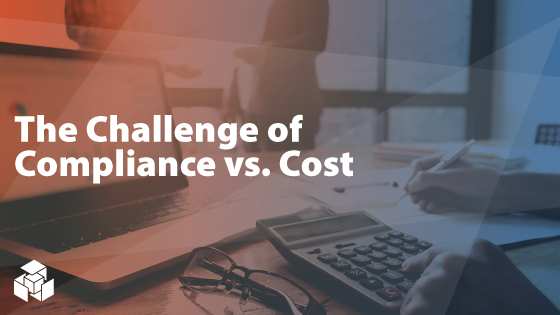Comparing Tax Transcript Retrieval: IVES 4506-C v. Halcyon’s Tax Wallet
Income verification continues to be one of the most critical—and complex—steps in the mortgage underwriting process. Whether you're working...
The mortgage industry has no shortage of regulatory oversight. The Fair Housing Act (FHA), Dodd-Frank Act, the Equal Credit Opportunity Act (ECOA), and the Fair Credit Reporting Act (FCRA) are just the start of a long list of federal laws imposed on lenders and originators. Along with the federal regulations, there are also state-by-state regulations that affect mortgage lenders. These laws and regulations are in place to protect both the borrower and the lender.
Staying current and compliant with all of the varying regulations can be difficult. Achieving compliance while minimizing risk is a balancing act which is why many lenders and originators use third-party vendors. Choosing the right vendor is critical. You need to know that your third-party vendor is adhering to compliance regulations and that the data they are providing you can be trusted and cost-effective.
When it comes to compliance, trusting your third-party vendor is key. For example, when verifying employment, a lender needs to know that their vendor is adhering to the consumers' rights under FCRA.
Informative Research (IR) has served the lending and insurance industry since 1946, developing the first-ever Tri-Merge Credit Report in 1994. Today, IR has an industry-leading technology platform delivering data solutions for the lending community that is lowering the cost of the loan process, providing a complete set of data solutions for originators, and increasing loan conversion. Products vary from prospect acquisition and credit solutions to verification services, collateral insight and portfolio management. IR is the premier data technology platform for originators and has three major security certifications: PCI, EI3PA, and SOC2. In fact, IR has achieved a 100% compliance rating on more than 200 control points within the Report on Compliance (RoC), exceeding industry-wide compliance and security standards.
To properly manage vendors, the CFPB requires lenders to:
Ultimately the lender is responsible for knowing their vendor(s) are abiding by the applicable regulations.
There are a growing number of options for third-party verification vendors. Lenders can choose individual vendors for each part of the process. However, as previously mentioned, this requires doing your due diligence, verifying each vendor's system is compliant, integrating and incorporating that vendor in the loan process and monitoring each one. With each additional vendor a lender uses, it increases the amount of oversight needed and increases the chance of error.
With Informative Research’s comprehensive data solutions, we deliver a technology platform with product offerings so lenders can reduce the number of data vendors they use and customize a bundle of services to fit their individual needs. When bundling services, lenders see immediate compliance benefits. They get robust data from diverse sources without the risk of relying on multiple vendors. Helping them avoid extra hassles and streamline their process while knowing their singular vendor is compliant.
As you can see, achieving compliance while managing risk is a balancing act. Add to that the costs, and it becomes even more difficult. Informative Research has partnered with some of the best companies in the industry, pulling data from multiple sources (See our Tri-Merge Credit report) to offer the depth lenders need but with tremendous savings.
Depending on the bundle and the client, lenders partnering with IR increase profitability by over 30% on their current data spend.
Bundling doesn’t just save lenders money, however. By consolidating vendors, lenders see immediate compliance benefits, too, helping avoid extra hassle. Lenders get robust data from diverse sources without the risk of relying on different vendors.
Although the ever-changing economic environment poses some challenges for lenders, it also provides an equal number of opportunities. Partnering with a trusted company to bundle data services is a smart strategy that cuts costs without cutting quality while minimizing compliance risks.
The right partner makes all the difference. With IR, you gain smarter credit and verification solutions, a team that has your back, and a strategy that grows with you.
/Blogs/2025%20Blog%20Posts/2025-09-IVES%204506-C%20vs.%20Halcyon%20Tax/IR_Blog--IVES-4506-C-vs-Haylyon-Tax-Wallet.png)
Income verification continues to be one of the most critical—and complex—steps in the mortgage underwriting process. Whether you're working...
/Blogs/2025%20Blog%20Posts/2025-09-Maximize%20Your%20Existing%20VOA%20Connection/IR_Blog-Understanding-the-cost-of-tax-transcript-retrieval.png)
Reducing borrower friction while maintaining compliance is a constant challenge. Lenders are under pressure to move faster, keep costs down, and...
/blogs/2024-12-AccountChek%20Tips%20and%20Tricks/AccountChek%20Tips%20%26%20Tricks.png)
Turning Bank Data Into Loan Approvals AccountChek Verification of Assets doesn’t just check bank balances–it can also help lenders verify rental...
